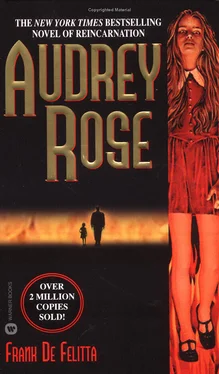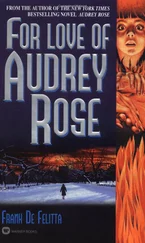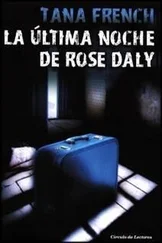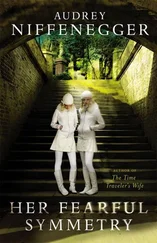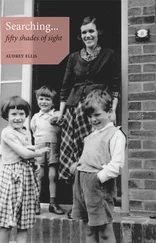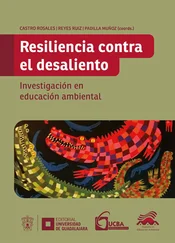“You know, folks,” he began, “there are few crimes committed today for no reason. Sometimes somebody’ll do something that’s against the law and either not know why he did it or be unable to distinguish between right and wrong. In many such cases those people are deemed by the law to be suffering from a mental disease and are often adjudged insane. But in the great majority of cases people commit crimes for a reason. And these reasons are many. Hatred, fear, jealousy, the desire to appropriate what doesn’t belong to them. You name it, the court records are full of reasons why people commit crimes.”
He hunkered forward, hands clasped, arms resting on knees, and went on, confidentially. “Now you know, there are reasons behind reasons for committing crimes. Take hatred. There are many reasons why people hate other people—and some of these reasons are strong enough to cause a man to rob, maim, batter, injure, and even kill another person. Sometimes these reasons behind the reasons are the only hope a man who is proved to have committed a crime has to keep out of jail. His lawyer will often build a defense based on this reason behind the reason and call it an extenuating circumstance. Now this is what I’m getting at and, please, listen to me good. In any crime, and especially a capital crime, there can be no reason behind the reason, no extenuating circumstance to absolve a man from accepting the full responsibility of his lawless act; there can be no reduction of his liability for that lawless act; there can be no condoning, forgiving, forgetting, and no acquitting him from paying the full legally prescribed penalty for his lawless act. Not in the name of extenuating circumstance, not in the name of mercy, mother, or God in heaven!”
On this dramatic note, Velie shot to his feet—a move so sudden and unexpected as to cause several jurors in the first row to flinch—and pointing a finger at the bench, he shouted, “Not in a court of law! Which is where you are sitting today! A court of law, ladies and gentlemen! Not a church, which is constituted to dispense God’s forgiveness. But a court of law, which is constituted to dispense man’s justice! ”
Scott Velie’s eyes traveled slowly across the courtroom toward Elliot Hoover, sitting motionless beside his attorney.
“Today, in this courtroom,” the district attorney continued, “a man stands accused before us of a crime so heinous and offensive to society as to be, along with willful and premeditated murder, categorized a capital crime. For there can be no more despicable act of lawlessness, outside of the taking of another human being’s life, than the taking of another human being’s child.…”
There were several choice moments in Velie’s cracker-barrel sermon when Brice Mack might have objected, but he restrained himself. Juror Number Seven, Graser, Mack had noticed, seemed singularly unimpressed by Velie’s approach and, at one point, during his admonition that God’s forgiveness was to be found in church and not in court, even antagonistic. Juror Number Three, the carpenter and devout Catholic Mr. Fitzgerald, wasn’t buying either. But Velie plowed ahead, scourging the courtroom of God’s mercy and setting the stage, Mack realized, for the confrontation with the reincarnation issue, the mainstay in the defense’s case.
“And we will further prove that it was a carefully considered and premeditated act. Through eyewitness testimony, we will demonstrate the care and planning that went into the engineering of this depraved and heartless crime. We will develop eyewitness testimony to show how many times Elliot Hoover lurked outside the child’s school, in disguise, stalking his victim; the number of times he visited the apartment house in which the child lived, for the purpose of casing it; how he ultimately moved into the apartment house to be in a better position to steal the child; how he consciously, knowingly, and intentionally created an incident, a diversion: a brutal attack on the child’s father which enabled him to gain access to the apartment and take the child; how he sneaked out the back door and secreted the child in his hideaway.…”
Brice Mack glanced at the wall clock. Eleven twenty-five. Velie, he knew, would continue his harangue until just short of the noon hour, at which point he would wrap it up with a dramatic denunciation of his client’s execrable and depraved act and call for the full penalty allowable by law. Then, following the lunch break, some two hours in the future, the moment would finally arrive when the defense of Elliot Hoover would formally begin. When two months of hard, round-the-clock, frantic activity would all be risked on a single throw of the dice: proof of the existence of reincarnation.
“… and for the damage he has done this family in his unwarranted attentions, leading up to the perpetration of”—instead of “execrable” and “depraved,” as Brice Mack had predicted, Velie resorted to—“this degenerate and evil crime of kidnapping, and the incalculable damage he might have done to the child, the State demands that Elliot Hoover be found guilty of kidnapping in the first degree, and that the court assess upon him the maximum penalty allowable by law.”
The courtroom heaved a long and weary sigh as Scott Velie nodded to the bench that he was through. The time was eleven fifty-seven. Judge Langley rose.
“We’ll take our noon recess now. Court will reconvene at one thirty.”
A murmuring hum accompanied jury and spectators to their respective exits.
Janice remained standing while Bill and Scott Velie exchanged friendly smiles topped off by supportive winks, expressions of confidence, as each knew the moment of truth was upon them. Janice saw Brice Mack speaking animatedly to Elliot Hoover as they slowly gravitated toward the prisoner’s door in the company of the armed guard. They would all eat lunch, now, Janice thought, partake of sustenance, renew their energies for the ordeal ahead. The condemned would eat a hearty meal. All of them.
It would be a four-martini lunch for Bill, Janice calculated, since he’d just finished his second, and they hadn’t ordered as yet. She, too, had relented on this day and was nursing a double J & B with water.
Pinetta’s was located in an alleyway just east of Foley Square, within easy walking distance of the Criminal Courts Building. Featuring a Tudor façade with South-of-France striped awnings, the restaurant was the happy marriage of two stores with upper lofts merged into a Dickensian fantasy. A collection of small paneled rooms, authentically furnished and decorated in the tradition of the Cheshire Cheese offered quasi-private dining rooms on three levels. Staircases went up and down in the least expected places. A charming and totally unexpected treat to have discovered in this rather bleak and monotonous part of town.
Catering almost exclusively to a clientele made up of the more affluent members and guests of the Criminal Courts Building, it was possible, during ongoing cases, to reserve a luncheon table for the duration. Bill and Janice’s table was located on the second-floor balcony, not too noisy, and well serviced, but with one serious drawback. Below them, visible from every angle of their table, was Brice Mack’s long deal table, around which his “team” gathered each day: five, sometimes six men of varying ages and social backgrounds eating, drinking, smoking, and jabbering their reports and opinions to the “boss,” Brice Mack, who sat at the head of the table.
Twice Bill sought another table from the manager and twice was put off with the polite promise: “Soon there will be plenty of tables, sir. The case in Part Four goes to jury any day now.” The “any day now” stretched into three weeks.
Читать дальше
